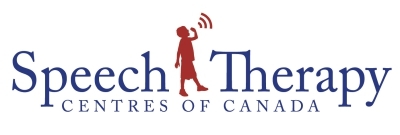Red Flags for Communication Issues for Patients with an Acquired Brain Injury (ABI)
Acquired Brain InjuryIt’s sometimes difficult to know if a client is experiencing communication issues post-accident. These are some red flags to look out for. In most cases patients were able to use these skills BEFORE the accident.
- Has difficulty following instructions at home, school and workplace
- Has difficulty getting to the point (main idea) in a conversation. Conversation is verbose (lengthy) and tangential (all over the place not making much sense)
- Contributes or adds very little to conversations. Comments may be single words or short sentences
- Has difficulty starting a conversation or commenting during a conversation
- Cannot follow a conversation due to difficulty recalling the content
- Cannot read newspapers, books and emails due to comprehension, concentration and memory issues
- Has word finding difficulties
- Has difficulty planning , problem-solving and making decisions – all skills involving language
- Blurts out inappropriate comments or swears (unlike before)
- Has issues with writing
The client’s family may comment that the patient:
- Can’t make decisions
- Doesn’t watch TV or read anymore
- Makes inappropriate comments
- Doesn’t initiate conversation or add to the conversation
- Talks too much
- Has trouble finding words (i.e., does not use specific names for items)
- Has a terrible memory
- Avoids social events
Some communication issues are obvious and easy to determine such as those related to Aphasia, Parkinson’s disease and Amyotrophic Lateral Sclerosis (ALS). But others are not, such as the red flags above. This is why it’s important to have a speech-language pathologist (S-LP) as part of the acquired brain injury clinical team. S-LPs can help to identify the less obvious, more subtle, and unfortunately often-missed communication issues that have resulted from an acquired brain injury. Patients may be able to talk but cannot communicate in everyday contexts such as the home, at school, university or work.
(1)The OBIA impact report 2012: A Statistical Snapshot of acquired brain injury and its effects on survivors and caregivers. Ontario Neurotrauma Foundation.
Proudly serving the following locations through our Richmond Hill Ontario office:
Bradford | Vaughan | Maple | Aurora | Woodbridge | Oak Ridges | Stouffville | Markham | North York
Proudly serving the following locations through our Brampton Ontario office:
Mississauga | Oakville | Milton | Etobicoke | Georgetown | Brampton | Burlington
905-886-5941
Aurora | Newmarket | Markham | Thornhill | GTA | Mississauga | Brampton | Burlington | Ajax | Oshawa | Pickering | Ottawa


